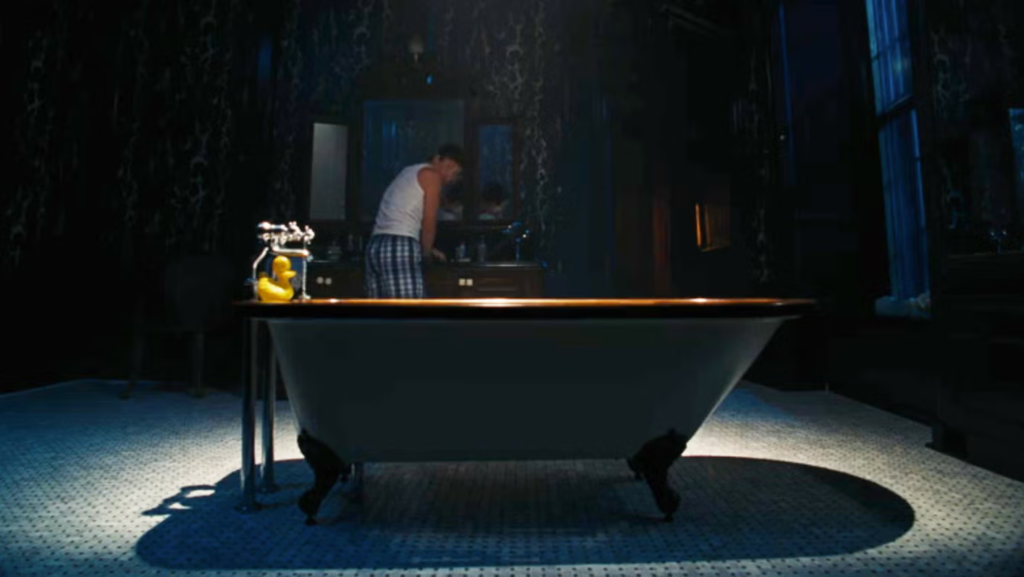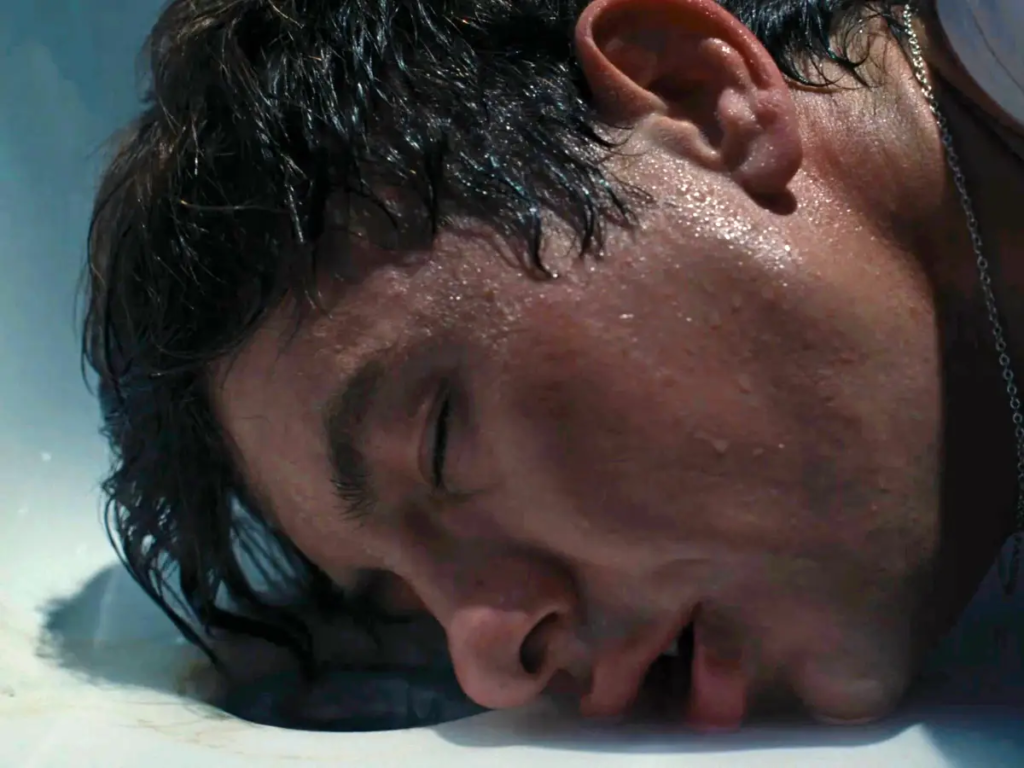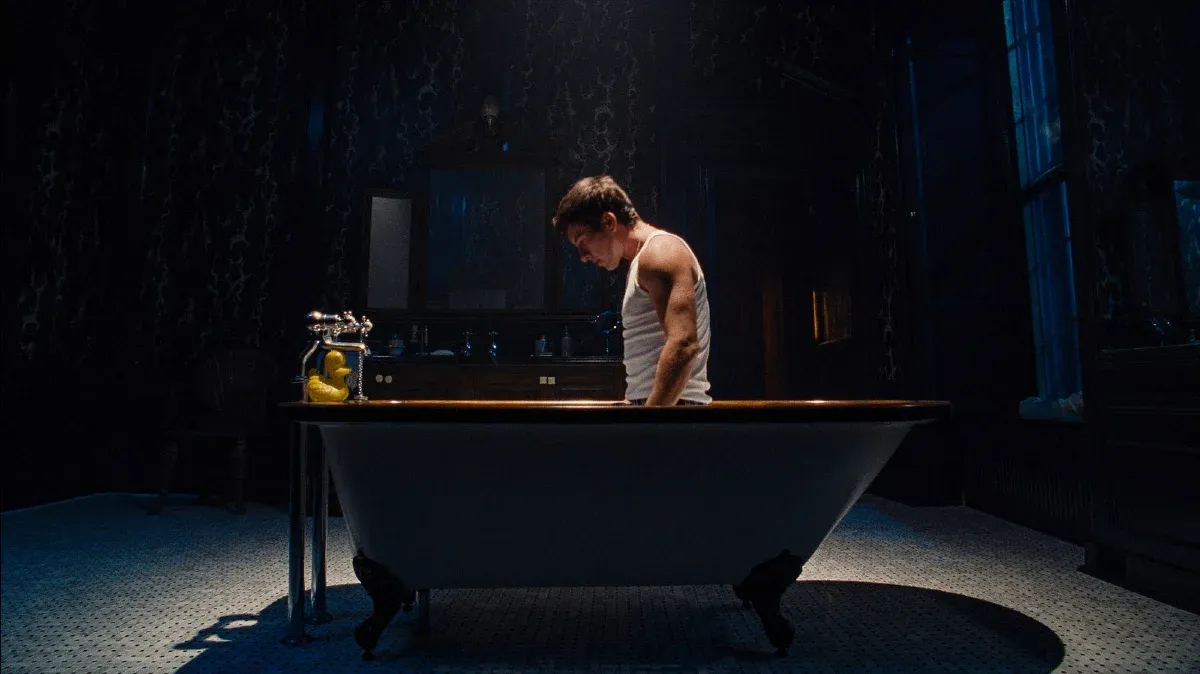Saltburn Bathtub Scene: A Step-by-Step Breakdown
Emerald Fennell’s Saltburn has quickly become one of the most talked-about films of the year, stirring up debates across social media platforms, film forums, and critical reviews. At the heart of the film is a pivotal moment that left many viewers shaken, disturbed, and deeply engaged in discussions: the notorious Saltburn bathtub scene. A shocking and profoundly symbolic moment, this scene has prompted audiences to reconsider how films can explore obsession, class dynamics, and human vulnerability.
This article aims to break down the infamous bathtub scene from Saltburn, exploring its themes, motivations, and the deep psychological layers that Fennell crafts through her visual storytelling. From the first hint of tension between the characters to the climax of vulnerability and obsession, let’s take a step-by-step look at what makes the Saltburn bathtub scene so powerful—and why it matters.

The Build-Up to the Bathtub Scene: The Obsession Begins
To truly understand the Saltburn bathtub scene, it’s essential to consider the emotional and psychological trajectory of Oliver Quick (played by Barry Keoghan). Oliver, a socially awkward student from a humble background, is invited to spend time at the lavish home of Felix Catton (Jacob Elordi), a classmate from a privileged family. The allure of Felix’s world captivates Oliver, but his infatuation quickly turns into something darker.
From the moment Oliver enters Felix’s world, the disparity between their backgrounds is stark. Oliver is fascinated by everything Felix represents: wealth, confidence, and seemingly carefree life. However, his admiration morphs into something more troubling as he fixates on Felix, attempting to get closer to him through various means—first with charm and later through more intrusive methods.
This mounting obsession sets the stage for the bathtub scene, where Oliver’s desires and psychological turmoil reach their zenith. Until this point, we’ve seen Oliver’s growing need to be part of Felix’s world, but in the bathtub, we see him willing to go to extreme lengths, crossing moral, physical, and emotional boundaries.
Sure! Below is a table of quick bios for the article “Saltburn’s Bathtub Scene: A Step-by-Step Breakdown,” featuring key characters, the film, and related elements.

Quick Bio
| Category | Details |
| Film Title | Saltburn |
| Director | Emerald Fennell |
| Main Character | Oliver Quick (Played by Barry Keoghan) |
| Supporting Character | Felix Catton (Played by Jacob Elordi) |
| Release Year | 2023 |
| Genre | Drama, Psychological Thriller, Dark Comedy |
| Setting | Felix Catton’s luxurious family estate |
| Key Scene | Bathtub scene where Oliver drinks Felix’s soiled bathwater |
| Themes | Obsession, Desire, Class, Power, Identity |
| Symbolism | The bathwater symbolizes Oliver’s need to internalize Felix’s world |
| Controversial Aspect | Shocking visual depicting degradation, obsession, and vulnerability |
| Character Motivation | Oliver’s desire to escape his modest background and enter Felix’s elite world |
| Film’s Message | The destructive power of obsession and the dangers of crossing moral boundaries in pursuit of intimacy |
The First Glimpse of the Bathtub Scene: Voyeurism and Fascination
The Saltburn bathtub scene begins subtly enough. After wandering around Felix’s lavish home, Oliver stumbles upon a moment of privacy he hadn’t anticipated—Felix in the bathtub. It’s a quiet, intimate moment, and Oliver, ever the voyeur, can’t tear himself away. This moment of watching Felix, both naked and vulnerable, underscores the deep divide between the two characters: Felix, fully aware of his wealth and power, and Oliver, consumed by a need to understand and enter Felix’s life on a much deeper level.
Here, the act of voyeurism—watching Felix without him knowing—becomes a metaphor for Oliver’s obsession. He isn’t just watching to satisfy a physical desire; he is attempting to unravel Felix’s essence, searching for a key to unlock what he believes to be a better life filled with power, wealth, and belonging.
But instead of stepping back, Oliver inches closer to the boundary of personal privacy. This moment catalyzes his descent, showing how his obsession has slowly transformed into an unhealthy need to consume and internalize Felix’s life.

The Descent Into the Bathtub: The Act of Consumption
The pivotal moment in the Saltburn bathtub scene occurs after Felix leaves the bathroom. Oliver, seemingly paralyzed by his obsession, enters the bathroom and inspects the bathtub. What happens next is nothing short of disturbing: Oliver, in a moment of grotesque desperation, lowers himself into the filthy water, drinking the bathwater that Felix had just used.
This act, profoundly unsettling and hard to watch, is more than just a shocking visual. It’s a manifestation of Oliver’s complete surrender to his obsession. Oliver symbolically consumes Felix while drinking the bathwater. He internalizes the physical remnants of the man he is obsessed with and the life he desires to become a part of. In its filth and degradation, the bathwater represents Oliver’s complete disregard for his dignity and the lengths he is willing to go to prove his devotion to Felix.
What is especially compelling about this scene is the emotional and psychological degradation it portrays. In his warped understanding of intimacy, Oliver believes that consuming Felix’s remains will somehow bring him closer to his ideal of who Felix is—both in a literal and metaphorical sense. This tragic misunderstanding of closeness speaks volumes about Oliver’s distorted view of relationships and the lengths to which obsession can blind a person.

Psychological Underpinnings: Desire, Power, and Self-Destruction
To truly grasp the significance of the Saltburn bathtub scene, it is essential to examine the psychology of Oliver’s actions. Throughout the film, we see how Oliver’s obsession is not purely based on desire but also a deep-seated need for power, validation, and a sense of belonging. He has spent much of his life as an outsider, constantly watching others live a life he can only imagine.
When Oliver enters Felix’s world, he begins to believe that by mimicking Felix’s lifestyle, he can somehow bridge the chasm between his reality and Felix’s. The bathtub scene, therefore, is not just about physical attraction—it is about Oliver’s desperation to become something he is not. He’s willing to degrade himself and drink the remnants of someone else’s privilege in the hope that it will somehow allow him to step into that world of wealth and power. But in doing so, he only deepens his alienation from Felix and himself.
This moment is a commentary on the darker sides of obsession and the fragility of identity. Oliver’s actions represent a complete breakdown of personal boundaries—his own and Felix’s. In this context, the bathtub scene becomes a tragic representation of the self-destructive nature of obsession, showing how far one can fall in pursuing something as imaginary as social status and love.
Symbolism and Themes: Class, Desire, and Transgression
The Saltburn bathtub scene is laden with symbolism that ties into the film’s themes of class and desire. Oliver’s fascination with Felix is not just based on romantic attraction; it’s also rooted in a yearning for social mobility. Oliver’s humble background makes him acutely aware of the divide between him and Felix, and the repulsive and intimate bathwater serves as a metaphor for his desperate attempt to bridge that gap.
Through this shocking act, the film critiques the systems of class and privilege that govern society. Oliver’s obsession is not only with Felix as an individual but also with the world he represents—one of wealth, power, and opportunity. By drinking Felix’s bathwater, Oliver not only degrades himself but also highlights the lengths some will go to to achieve social mobility, no matter how grotesque or damaging.
At the same time, the film challenges the viewer to reflect on the line between love and obsession, desire and transgression. The Saltburn bathtub scene forces the audience to grapple with uncomfortable questions about the limits of human desire and whether those limits should be respected or transgressed in the pursuit of intimacy and connection.
FAQs
What is the significance of the Saltburn bathtub scene?
The bathtub scene symbolizes Oliver’s intense obsession with Felix and his desire to consume his world. By drinking Felix’s bathwater, Oliver transgresses social and personal boundaries, highlighting his distorted understanding of intimacy and his willingness to degrade himself for acceptance.
Why is the bathtub scene so controversial?
The scene is controversial due to its shocking imagery and the grotesque nature of Oliver’s actions. It challenges viewers to confront uncomfortable truths about obsession, desire, and self-destruction, making it a pivotal, unsettling moment in the film.
How does the bathtub scene relate to the film’s themes of class and power?
The bathtub scene reflects Oliver’s desire to bridge the gap between his modest background and Felix’s privileged world. His extreme actions symbolize his attempt to internalize Felix’s status and lifestyle, ultimately critiquing the lengths people may go for social mobility and acceptance.
Conclusion
The Saltburn bathtub scene may be one of the most controversial and disturbing moments in recent cinematic history, but its impact goes far beyond shock value. It is a meticulously crafted, profoundly symbolic exploration of obsession, class, and the self-destructive lengths people will go to satisfy their desires. Through Oliver’s descent into the bathtub, Fennell offers a haunting commentary on the fragility of identity, the dangers of unchecked obsession, and the complexity of human relationships.
By the film’s end, the consequences of Oliver’s actions—his disintegration and alienation from Felix and society—become painfully clear. The bathtub scene is a grim reminder that obsession can never truly bridge the divide between fantasy and reality, no matter how deeply felt. Ultimately, Oliver’s actions are a tragic testament to the destructive power of desire and the emptiness that comes from seeking intimacy through transgression.
In Saltburn, Fennell creates a chilling portrait of how obsession can not only fracture a person’s sense of self but also warp their understanding of relationships and the boundaries that should define them. The bathtub scene remains one of the film’s most potent moments—an unsettling reflection of the depths to which obsession can drive a person and a grim reminder of the price of desire when it goes unchecked.













Post Comment